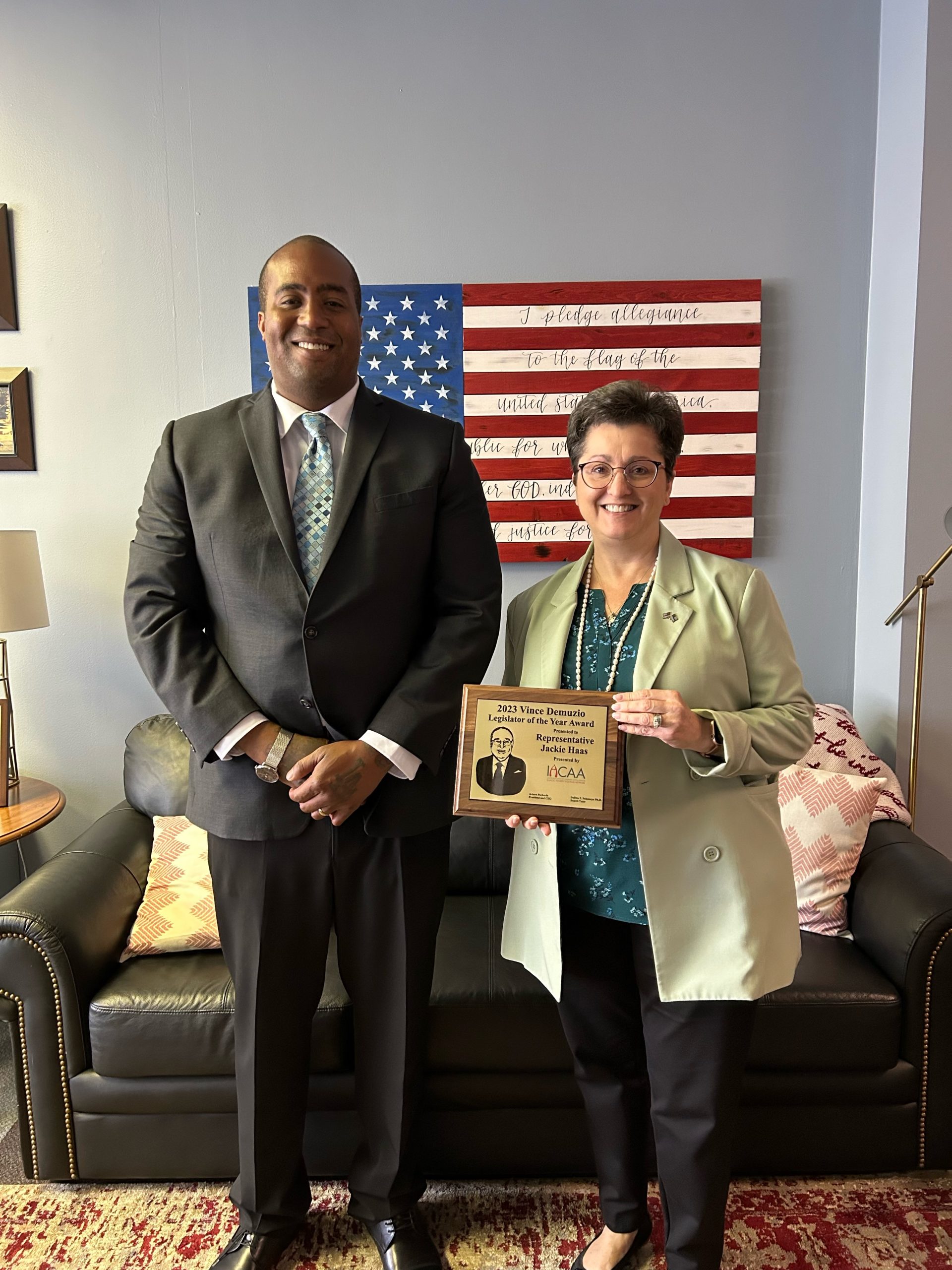SPRINGFIELD – On Wednesday, House Assistant Minority Leader Jackie Haas (R-Kankakee) was awarded the Vince Demuzio Legislator of the Year Award from the Illinois Association of Community Action Agencies for 2023. The president of IACAA, Arturo Puckerin, visited Leader Haas’ Springfield office to present the award to her.
“Poverty affects too many communities in the 79th District and across Illinois, and it is imperative we work hard to combat it and help our low income neighbors,” said Leader Haas. “I’m honored to receive this award and am committed to improving the lives of low income Illinoisans so every Illinoisan has the opportunity to succeed and live happy, fulfilling lives. As a social worker for over 30 years, I understand the issues people affected by poverty face. I will continue supporting legislation to also assist these individuals and help them overcome challenges presented by poverty.”
The Illinois Association of Community Action Agencies is a membership organization and serves as the backbone for training, technical assistance, and advocacy efforts. It was founded in 1971 in Springfield and former State Senate Majority Leader Vince Demuzio served as the first executive director of IACAA prior to his first Senate term in 1975.
Leader Haas has fought for low income residents of the 79th District since she began her service in the House of Representatives in 2021. One of her most significant accomplishments was backing bipartisan legislation to bring natural gas to Pembroke Township, an area in the 79th District that has been historically underserved. Residents in Pembroke had been forced to heat their homes and cook with wood, propane gas, or electricity, causing a significant financial burden for many. Leader Haas also leads the House Republican Supporting Women & Families working group, which tackles issues such as the cost of living, child care, and retaining Illinois teachers and medical professionals.
Community Action Agencies were first established in Title II of the Economic Opportunity Act of 1964 to provide stimulation and incentives for rural and urban communities to mobilize their resources in order to combat poverty. The concept then evolved into the board structure of Community Action Agencies for equal representation by people with low income, public interests, and private entities.
